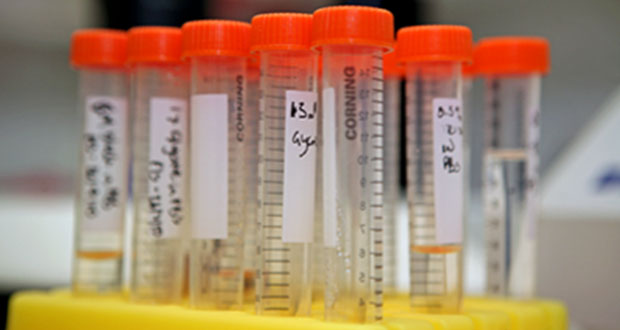Immune Protein Could Offer Potential New Target For Alzheimer’s Disease Treatments
 Research published last month suggests that an immune system protein could help to reverse some of the physical and cognitive changes seen in Alzheimer’s disease.
Research published last month suggests that an immune system protein could help to reverse some of the physical and cognitive changes seen in Alzheimer’s disease.
The research was published in Proceedings of the National Academy of Sciences (PNAS) and conducted by researchers from the University of Glasgow and the Hong Kong University of Science and Technology.
It showed that the protein IL-33 reduced the amount of amyloid in the brains of mice that showed symptoms similar to Alzheimer’s. The mice also showed improvements in memory.
IL-33 is a protein that acts as a chemical signal for immune cells. Here, researchers found that IL-33 appears to work by activating immune cells to find and destroy amyloid plaques, the clumps of sticky protein that cause damage in the brains of people with Alzheimer’s disease.
Dr James Pickett, Head of Research at Alzheimer’s Society, said:
‘We know that inflammation plays a key role in the development of dementia and some genetic studies have suggested a link between this protein and the development of Alzheimer’s disease.
‘Here, the researchers have shown that the protein can lead to short-term improvements in memory and reductions in the amount of amyloid in the brains of mice with symptoms similar to Alzheimer’s disease. They suggest that the protein can switch the function of the immune cells in the brain. Instead of causing harmful inflammation, the immune cells seek out and destroy the toxic amyloid plaques caused by Alzheimer’s disease. It’s still early days for this line of research and we will need to see if similar mechanisms occur in people as in mice.
‘With an ageing population and no new dementia drugs in over a decade, the need to find treatments that can slow or stop the disease progression is greater than ever. There are already some clinical trials looking at inflammation – this latest finding adds to our understanding of why targeting inflammation may be a promising approach.’






